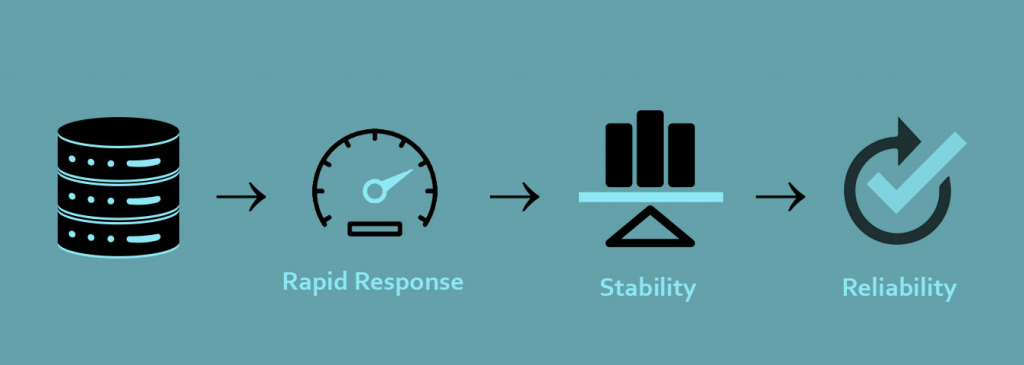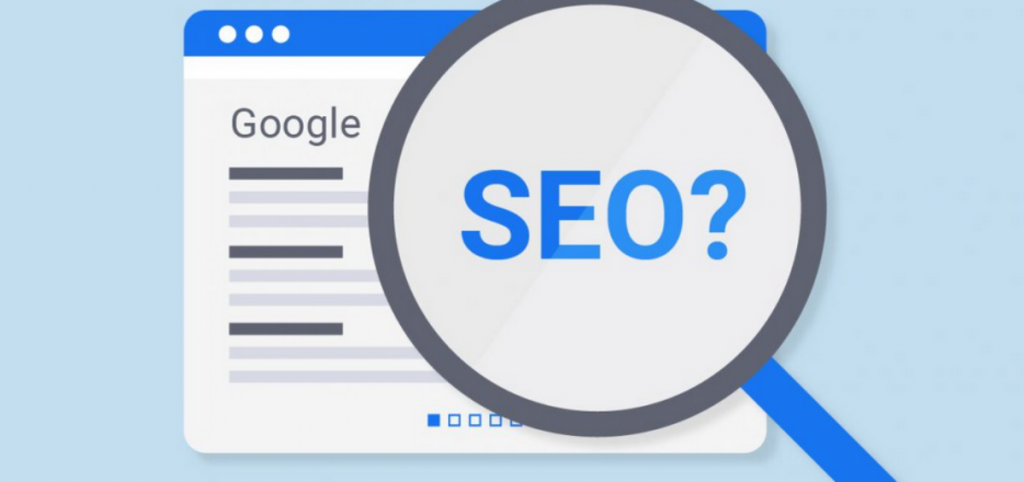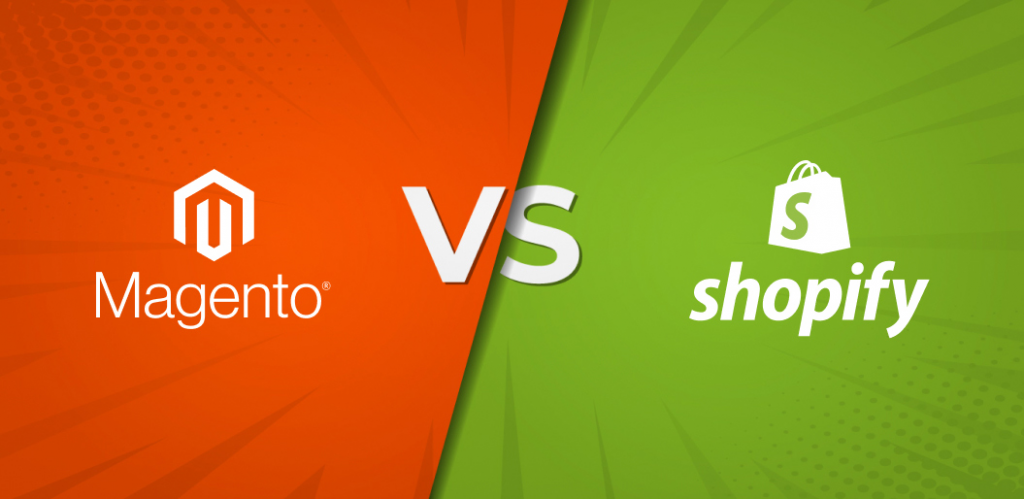The choice of a company’s eCommerce platform can potentially make or break its success. There needs to be an emphasis on choosing the right kind of eCommerce platform for the right kind of business in order to achieve maximum gains. Users need to make informed choices when deciding which features of a platform do they need to factor in the most since no single platform comes pre-built with all the required features.
As a go-to application for medium to large scale enterprises, Magento is one of the most popular eCommerce platforms out there. With a large user base and a wide array of clients, Magento anticipates and provides them with just the right features that help them increase their ROI and build lasting customer relationships.
Shopify, on the other hand, is a popular choice for small businesses who need to engage with their customers through eCommerce services. Shopify overlaps with Magento over a few key features and also aims to provide just the right kind of platform to cater to the needs of their specific brand of clients.
So for novices in the eCommerce world, the question remains, Magento or Shopify? Let’s explore the two platforms to see what each brings to its users!
Convergence Of The Two Platforms
Magento and Shopify are two unique eCommerce platforms, each with their own set of features and functionalities. However, at the core of it all, both Shopify and Magento are eCommerce platforms dedicated to facilitating their users with the best means of managing their businesses.

Both platforms are well constructed and specifically designed in a way that renders them easy to use. Both Magento and Shopify strive to provide the best user experience to the vendors and visitors alike. At the same time, both provide opportunities to expand the platform, however, they do so in different ways. Both platforms offer themes to users to personalize their application, and some of these themes are free, whilst some are available upon payment. Both platforms offer SEO and marketing tools to allow their users to reach a wider customer base.
Divergence Of The Two Platforms
Despite some similarities that are shared between the two eCommerce platforms, there are a lot of differences in the features as well as services provided by the two. This makes them both unique and allows them to cater to a varied audience.
Speed And Performance
Speed is an essential metric on which the success of an online platform is judged. A faster website results in better customer experience and increases the likelihood for them to revisit. I this context, Shopify does not offer its users any control over the hosting environment or the server-level adjustments. Despite that, the speed of the platform is still efficient enough to offer its users a seamless experience.

On the other hand, Magento allows its users to choose their own server and make any changes or tweaks to boost the performance of their platform, as it is a self-hosted service. This gives users more control and flexibility over their own platform. The tweaks include using managed Magento hosting with advanced technologies such as CDN and caching mechanisms.
Customizability
Having the option to tailor your eCommerce platform according to your specific needs is one of the most important things users look for when choosing the platform. Magento being a self-hosted, open-source platform, gives its users a lot of flexibility and control when it comes to adjusting the way the application is set up, including the webpages, categories, integrations with third-party plugins, etc.
Shopify, on the other hand, is a hosted solution that on the one hand, offers users an easy-to-use ready-made platform that does not require any further development, but on the other hand, it means that the users have limited control over customizations since the source code is inaccessible.
►►►► Please visit our products: Magento POS, BigCommerce POS, Shopify POS, Woocommerce POS, NetSuite POS, Mobile POS, White label POS, Reseller POS, POS System for Retail and Commercetools POS
Payment Modules

Both Magento and Shopify have their own mechanisms to enable online payment. Shopify allows users to adopt a custom payment solution via integration and ensures their ease of payment. Magento, however, has far more extensive payment options available. Users can extend greater convenience to their customers by incorporating several different payment modules, including third-party applications due to Magento’s open-source nature.
User Friendliness
Shopify allows its users to leverage simple features like the drag-and-drop interface and easy tools to make some basic changes to the platform so as to tailor it to their needs. Magento, however, has a much more complicated method for customizations, that require users to familiarize themselves with slightly complicated development activities. The end result, however, allows users more room to tailor the platform according to their specific requirements.
Inventory Management
Since Shopify is a simple interface, it can mostly deal with low-volume inventories such as those for small businesses. Several features can be further added to Shopify by incorporating extensions such as those for promotional sales and discounts for registered users.

For Magento, the basic inventory management system is supplemented by several advanced features that allow it to cater to medium and large enterprises. The inventory management can be made easier by adding extensions such as those that help the inventory be classified along the lines of product types or colors. The effort required for their setup is well worth the ease that users experience when managing the inventory.
SEO Opportunities
Employing useful SEO techniques allow brands to market their products in a manner that promises good returns. Shopify offers limited SEO options, which include optimizing the inventory, using meta tags, and editing product pages. Further optimization can be achieved by modifying file structures to facilitate in SEO.

As far as Magento is concerned, it enables its vendors to incorporate their complex, digital marketing strategies into the eCommerce platform. Vendors can customize the store design and organize it in a way that maximizes any benefits that can be acquired from SEO techniques. These include adding meta-descriptions and fine-tuning perma-links for products in the inventory.
Pricing Model
Shopify comes with an initial free trial that eventually requires users to subscribe to the platform. The subscription fees vary as per the type of Shopify package purchased. Magento begins with a basic free platform that goes on towards increased subscription fees depending on the complexity of the Magento platform chosen by the users.
The Bottom Line!
Both Shopify and Magento are eCommerce platforms that are well-equipped to serve the needs of their users. With the added benefit of Magento being an open-source platform, there are several features that can be incorporated which make the scales tip heavier in favor of Magento. These added features can be third-party integrations and customizations. Rolustech offers its expertise in Magento Customization Services that would allow you to make the most out of your eCommerce platform.
Interested? Rolustech is a full-service Magento Agency eCommerce Platform development firm and our experts can make sure your e-commerce platform serves your business in every way possible. Get in touch today for a Free Business Analysis session!
Article source: https://www.smartosc.com/
►►►► Our related services: low code platforms, cloud networking, adobe marketing cloud, IT jobs in Vietnam, partner strategy for ai, digital customer experience strategy, digital transformation, core banking platforms, agentic ai companies, phần mềm quản lý doanh nghiêp, nền tảng quản trị doanh nghiệp, phần mềm nhân sự, phần mềm chấm công, phần mềm tính lương, phần mềm KPI, phần mềm OKR, Phần mềm quản lý dự án, App chấm công, Cách tính lương, Ftrip Viet Nam, vietnam itinerary 2 weeks, north vietnam 2 week itinerary, northern vietnam 2 week itinerary, vietnam luxury tours, custom travel itinerary, best tour operators in vietnam, Vietnam Photography Tour, Photography Tour Guide Viet Nam

